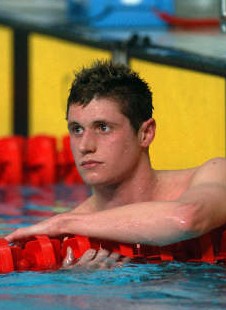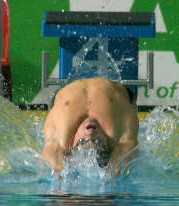
It’s almost like the start of a new era. Although the team selected for the Montreal World Championships does not yet represent a clean break with the past, following the huge wave of retirements in the aftermath of the Athens Olympics, only four swimmers now remain from the last senior team to be selected without the influence of Bill Sweetenham.
Those four, Darren Mew, Katy Sexton, Ros Brett and Becky Cooke are the last remnants from the 2000 Olympic campaign and it seems more than coincidence that all four have produced their lifetime best performances in the period since Sydney. They have had to do so just to keep pace with the wind of change that has swept though the national team in the intervening years.
In the place of the old guard has come a new breed of junior talent. While it may be still too early to see the full benefits of Sweetenham’s and John Atkinson’s rejigged youth programme in the national squad, there’s little doubt that the new members of the team have come through to the top with a very different attitude to their predecessors. They are a generation of swimmers accustomed to doing it tough. Whereas some, although clearly not all, members of the Sydney team expressed disagreement with the tough regime and qualification standards that Sweetenham espouses, this new crop have embraced the challenge and on the most part risen to it.
That’s not to say that change for change’s sake is a necessarily a good thing, or that these forthcoming championships should not have been used to give some more of the up and comers international experience, maybe something of a missed opportunity. However, much as has been the case with successful sports teams the world over, be it the dominant Australian cricket team, the England rugby team of the early 21st century or the successful Arsenal and Manchester United soccer teams of the 1990’s, Britain is attempting to generate a winning culture in its national swimming squad. That quest started to bear fruit in Barcelona, with 9 medals won, but suffered a bit of a hiccup in Athens when some of the team succumbed to the weight of expectation.
This year, by selecting only the best performers from the trials and stage 3 meets the bar has been set high and every member of the 18 swimmer squad in Montreal should expect to be present in their respective finals. It is building that level of expectation and self belief that will be so critical in the years between now and Beijing. Britain’s swimmers need to develop a confidence that they, and more importantly their rivals, know that they can and will perform on the big stage. Of course much of that comes from behind the scenes preparation, but if the mental battle can be won then the likelihood of success is much greater.

Which brings us to Montreal itself. From Sweetenham’s perspective the meet needs to be a success for Britain or there will inevitably be sustained criticism of the selection policy. But where are medals likely to come from? Mel Marshall again looks a good bet, while her Loughborough team-mate Caitlin McClatchey thrust herself firmly into contention with her 400m performance in Swansea. Both will benefit from the experience that coach Ben Titley shared with Marshall in Athens and should be thereabouts in the medal shake-up. Both girls will have a great chance in the 4x200m freestyle relay too, when they team up with Julia Beckett and Jo Jackson. Rebecca Cooke enters the meet ranked number 1 in the world this year over 800m freestyle and must again start with a great chance of repeating her medal winning performance form 2003. Elsewhere finals placings would seem to be the order of the day, but having achieved that, anything can happen.
On the Men’s side David Davies has proven himself as a big time competitor over the past two years, but will need to be at his best again here to mount a serious challenge. The breaststroke men as always are a chance, but none have been showing world beating form so far this year, while backstrokers, Tancock, Goddard and Tait are another trio with the potential, and in Tancock’s case a world number 4 ranking over 50m, to do well.
This meet may be in a post-Olympic year but serves as a vital stepping stone on the way to Beijing. The team in Montreal has every possibility of equalling the performances from Fukuoka and Barcelona, and such a result would be a big move towards that all important winning culture.

